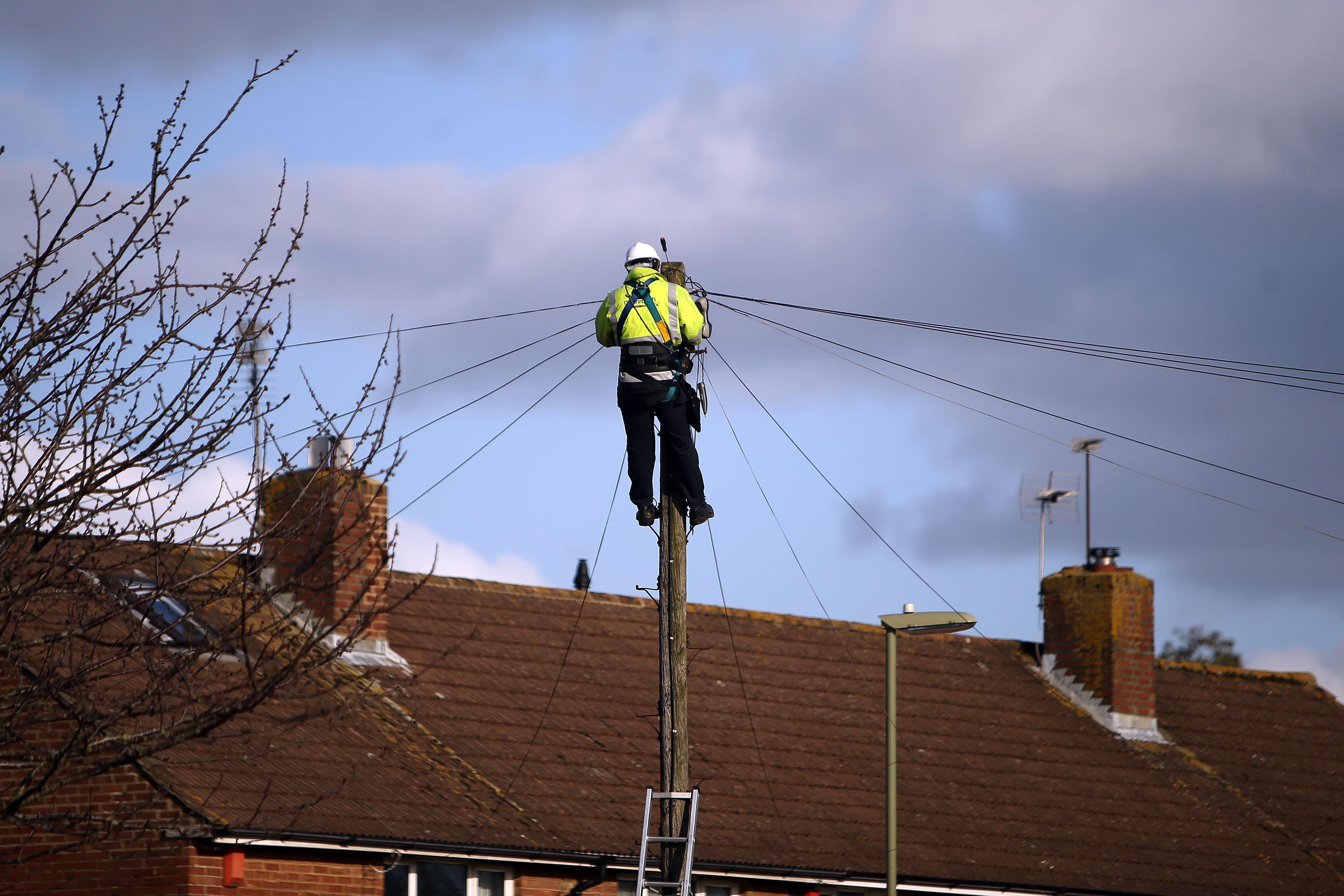Six of the UK’s biggest broadband providers judged to have ‘misled’ customers over price hikes
Advertising Standards Authority rules against BT, EE, Plusnet, TalkTalk, O2 and Virgin Media

Your support helps us to tell the story
From reproductive rights to climate change to Big Tech, The Independent is on the ground when the story is developing. Whether it's investigating the financials of Elon Musk's pro-Trump PAC or producing our latest documentary, 'The A Word', which shines a light on the American women fighting for reproductive rights, we know how important it is to parse out the facts from the messaging.
At such a critical moment in US history, we need reporters on the ground. Your donation allows us to keep sending journalists to speak to both sides of the story.
The Independent is trusted by Americans across the entire political spectrum. And unlike many other quality news outlets, we choose not to lock Americans out of our reporting and analysis with paywalls. We believe quality journalism should be available to everyone, paid for by those who can afford it.
Your support makes all the difference.The advertising watchdog has ruled against six of the UK’s biggest broadband providers after they all failed to make mid-contract price increases clear to consumers.
The Advertising Standards Authority (ASA) said BT, EE, Plusnet, TalkTalk, O2 and Virgin Media Broadband misled consumers by placing important information about price rises separately to headline prices and in areas of less prominence on their websites.
The ASA ruled the ads must not appear again and told all six providers to ensure they make sufficiently clear that their broadband contracts would be subject to mid-contract price increases, and that information about the nature of such rises is presented prominently.
The rulings are part of wider work by the regulator on mid-contract price rises and follows guidance for firms that sets stricter standards on the prominence advertisers must give to important information about future increases.
The new advertising guidance, which came into force in December after a six-month grace period, advises that information about any price increase should be “up front and prominent”, and that the full future price the consumer will pay should be included in pounds and pence.

A Virgin Media O2 spokesperson said: “After working closely with the ASA to update our website and provide prominent advice about any price changes, we are surprised and disappointed by their ruling.
“Consumers visiting our website are greeted with a prominent message at the top of the page explaining in large bold font how and when price rises take effect, and this explanation is also always visible when consumers scroll, ensuring they are not misled.
“While we’re confident in the steps we’ve taken to repeatedly provide consumers with clear and easy-to-understand information about any price rises, we’ll carefully review their judgment and implement any necessary changes.”
A spokesperson for BT, EE and Plusnet said: “The ASA has acknowledged that all of the relevant information explaining price increases was included on our websites, but it has asked for even greater prominence.
“We take compliance very seriously and are now updating all of our websites in line with the ASA’s findings. We want customers to be clear about what they’ll pay throughout their contract, which is why we were the first provider to move away from inflation-linked annual price rises in favour of a simpler and more certain pounds and pence increase.”
Many of the biggest broadband firms raise monthly bills every April during the term of contracts in line with the Consumer Price Index (CPI) or the Retail Price Index (RPI) plus an additional set amount of around 3 per cent to combat rising business costs.
This usually means a price increase of around 4 to 5 per cent each year, regardless of the original cost of the deal. However, since the inflation rate is still stabilising after a 30-year high in 2023, price hikes remain higher than normal.
As a result, many providers raised prices by up to 7.9 per cent in April. Virgin Media increased its prices by 8.8 per cent.
Customers wanting to avoid these hikes can be charged punitive exit fees to leave their contract early. This is set to change from next year after Ofcom banned broadband providers from linking their annual price hikes to inflation, meaning new customers may start to see a fixed yearly increase when they are signing up instead.
PA
Join our commenting forum
Join thought-provoking conversations, follow other Independent readers and see their replies
Comments